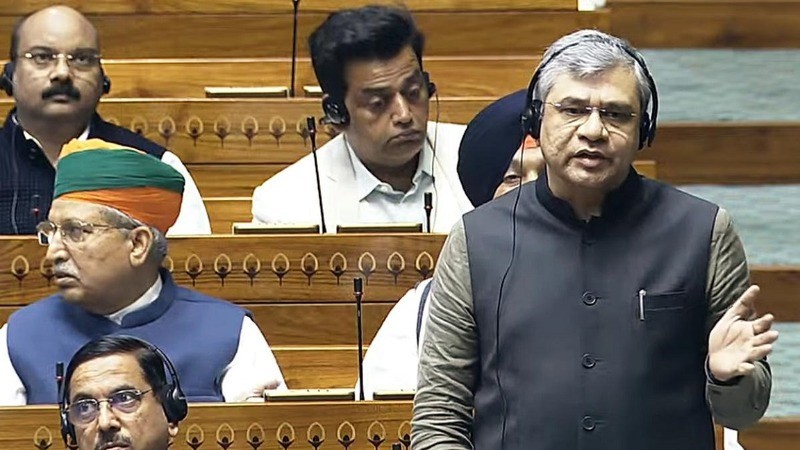
The Lok Sabha on Wednesday, December 11, passed the Railways (Amendment) Bill, 2024, amid disruptions during the Winter Session of Parliament.
Introduced on August 9 by Union Railways Minister Ashwini Vaishnaw, the Bill aims to provide statutory powers to the Railway Board, enhancing its functioning and independence.
Key Amendments and Objectives
The Bill empowers the Central Government to determine the composition of the Railway Board, specifying the number of members, their qualifications, experience, and terms of service. By granting this authority, the amendment seeks to improve the administrative capabilities of the Railway Board, streamlining its operations and decision-making processes.
In addition, the amendment help make feasible for the approval, expansion, and re-routing of super-fast trains through Thawe Junction in Bihar. This includes changes to the route of the Arunachal Express (Train No. 22411/22412), which will now pass through Siwan, Thawe, Kaptanganj, and Gorakhpur. The adjustment addresses long-standing demands for improved connectivity between Thawe Junction and major cities like Delhi, benefiting local residents, including migrant workers and pilgrims.
Historical Context and Legal Simplification
Explaining the significance of the amendments, Vaishnaw noted that provisions from the Indian Railway Board Act, 1905, are being integrated into the Railways Act, 1989. This unification aims to simplify the legal framework governing railways by eliminating the need to refer to two separate laws.
The minister highlighted the historical evolution of network of the railway. Initially, part of the Public Works Department before independence, the Indian Railways Act, 1890, was introduced to manage railway operations. The Railway Board Act of 1905 was later enacted when the railway organisation was separated from the Public Works Department. Although the Railways Act, 1989, replaced the earlier law, the Railway Board continued to function without statutory backing.
Addressing Regional Needs
The amendment holds particular significance for Bihar’s Thawe Junction, which has long faced a lack of direct train connections to major cities. By expediting approvals for superfast train operations and rerouting, the government aims to enhance connectivity, fostering regional development and fulfilling local demands.
Broader Impact
With its focus on strengthening the Railway Board and addressing regional connectivity challenges, the Railways (Amendment) Bill, 2024, marks a significant step in modernising India’s railway administration. The amendments are expected to pave the way for more efficient governance and improved services across the country.